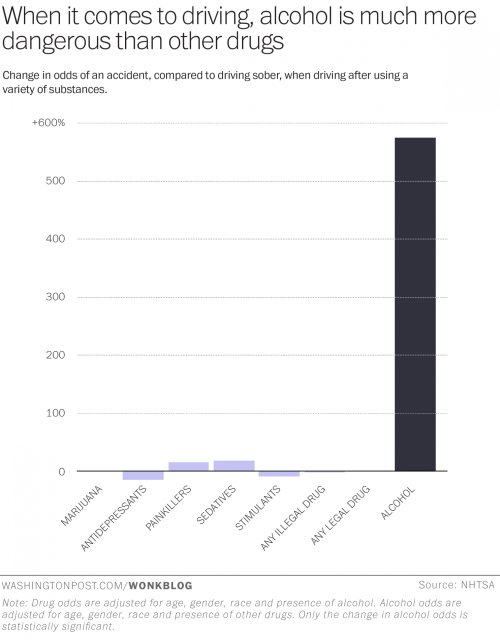![]() Marijuana Arrests in Colorado After the Passage of Amendment 64
Marijuana Arrests in Colorado After the Passage of Amendment 64
The report finds that since 2010, marijuana possession charges are down by more than 90%, marijuana cultivation charges are down by 96%, and marijuana distribution charges are down by 99%. The number of marijuana possession charges in Colorado courts has decreased by more than 25,000 since 2010 – from 30,428 in 2010 to just 1,922 in 2014.
![]() (Via press release on Tuesday): Rep. Steve Cohen (D-TN) and Rep. Don Young (R-AK) Submit Companion Bill to CARERS Act to Allow States to Legalize Medical Marijuana
(Via press release on Tuesday): Rep. Steve Cohen (D-TN) and Rep. Don Young (R-AK) Submit Companion Bill to CARERS Act to Allow States to Legalize Medical Marijuana
Today a comprehensive bipartisan medical marijuana legalization bill was introduced to the House of Representatives. The bill serves as a companion to the Compassionate Access, Research Expansion, and Respect States (CARERS) Act, which would allow states to set their own medical marijuana policies without fear of federal prosecution. Senators Cory Booker (D-NJ), Rand Paul (R-KY), and Kirsten Gillibrand (D-NY) originally introduced the CARERS Act to the Senate earlier this month. Senators Dean Heller (R-NV) and Barbara Boxer (D-CA) co-sponsored the bill most recently. Reps. Steve Cohen (D-TN) and Don Young (R-AK) introduced today’s companion bill, which marks yet another significant leap of progress in bipartisan support for compassionate medical marijuana legislation.
“Police have as much business telling patients whether they should use medical marijuana as they do performing eye surgery – and with a similar rate of success,†said Maj. Neill Franklin (Ret.), executive director of Law Enforcement Against Prohibition, a criminal justice group opposed to the drug war. “When you treat a health problem like a matter for law enforcement, you only endanger the patient, who has no assurance of the quality or purity of what he’s consuming and must enter the illegal market to obtain it, and undermine respect for and effectiveness of law enforcement in our society.â€
The CARERS Act would foremost allow states to decide their own regulatory policies. It would also reschedule marijuana from the federal scheduling category I to II, which unlike Schedule I, recognizes medical efficacy and allows more extensive research for drugs within that schedule, though it is still very restrictive. If passed, the bill would also permit interstate commerce of CBD (cannabidiol) products. CBD is a non-psychoactive seizure suppressant found in marijuana that has shown to be effective in reducing the severity and intensity of seizures, particularly in pediatric epileptic patients.
![]() College Republicans in Madison fuzzy on the notion of “freedom.” Point counterpoint: Drug testing public assistance applicants promotes freedom, workforce
College Republicans in Madison fuzzy on the notion of “freedom.” Point counterpoint: Drug testing public assistance applicants promotes freedom, workforce
The United States is founded on freedom, where everyone has an opportunity. It is a place where success and happiness are attainable through one’s own will. Seizing opportunity and gaining success is the rewarding principle of the American dream.
Gov. Scott Walker and the state legislature hope to preserve this principle through their proposal of drug testing public assistance applicants. Drug testing public assistance applicants not only helps ensure that the unemployed are eligible for employment, but also promotes constructive behavior that is desirable in the workforce.
![]() New Mexico legislature passes sweeping bill to rein in forfeiture abuses
New Mexico legislature passes sweeping bill to rein in forfeiture abuses
The bill would basically require a criminal conviction before police can take property associated with a crime.
Just goes to show how Kafka-esque this world has gotten where we get excited over one state bravely moving toward what logically should be a common-sense baseline.
![]() Marijuana Edibles Blamed For Keystone Death
Marijuana Edibles Blamed For Keystone Death
Bizarrely, this article has idiots on twitter (Christine Tatum) demanding:
@DanRiffle, @tomangell, change the “No one dies from pot” message NOW. @learnaboutsam http://t.co/KnhPGVDdsE
If you read the article, it’s like someone deciding to go ice fishing after reading the “thin ice” signs, and making a hole with dynamite, blowing himself up in the process, and blaming the death on the lake.
I would classify this death as a Darwin award. But, “died from pot”? No.


